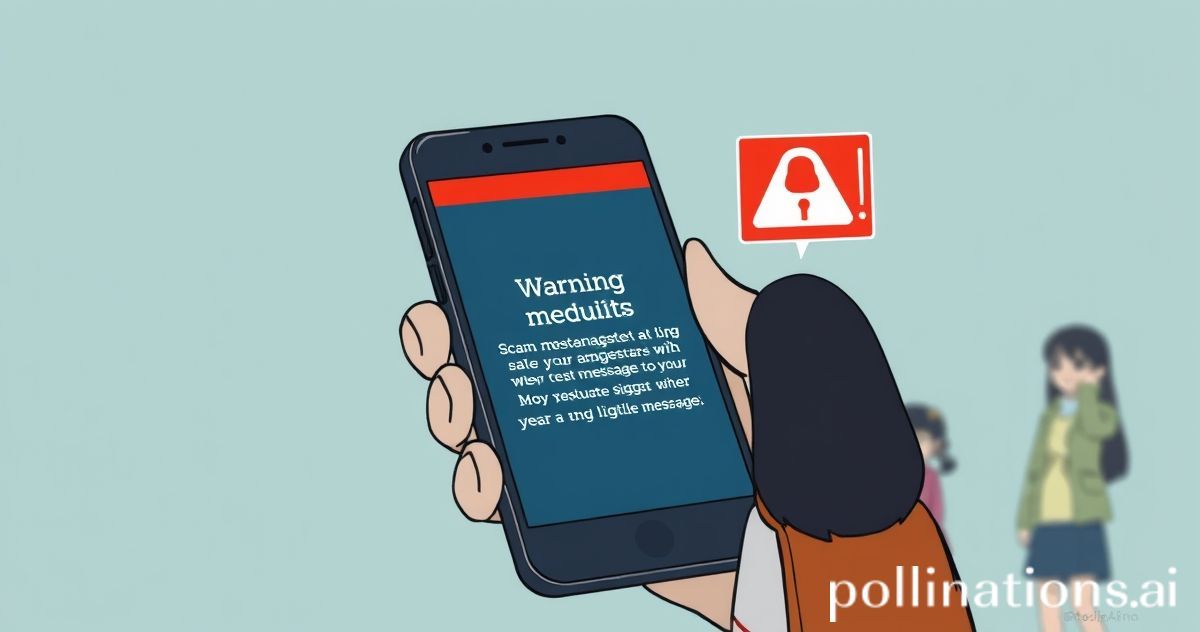The Ministry of the Interior and Safety warned on July 11th that smishing (SMS phishing) crimes related to the 'Livelihood Recovery Consumer Coupon' are expected to surge as the application and distribution period begins. The ministry particularly emphasized that any consumer coupon notification text containing URL links is "100% fraud."
Background of Surging Smishing Crimes
As the government's Livelihood Recovery Consumer Coupon policy for economic stimulus enters full implementation, fraudsters are exploiting this program for criminal activities. Scammers are impersonating government agencies, card companies, and banks to send fake text messages about eligibility notifications, amount guidance, card usage approval, and applications.
The Ministry of the Interior and Safety firmly stated, "If any consumer coupon-related notification text contains URL links, it is 100% fraud." The key point is that the government does not include links in any consumer coupon-related messages.
Official Government Application Methods
The Livelihood Recovery Consumer Coupon can only be applied for through designated official channels. The government's official application methods are as follows:
Non-face-to-face (Online) Applications:
- Card company apps and websites
- Call centers and ARS
- Local love gift certificate apps and websites
Face-to-face (Offline) Applications:
- Visiting banks linked with card companies
- Visiting local government offices (community centers)
The government emphasized that consumer coupon applications are impossible through any channels other than these official ones, and applications via text messages are absolutely impossible.
Smishing Crime Methods and Damage Cases
Recent smishing crime methods include:
First, impersonating government agencies to send messages stating "You have been selected as a recipient of the Livelihood Recovery Consumer Coupon."
Second, impersonating card companies or banks with messages like "Identity verification is required for consumer coupon card issuance."
Third, creating psychological pressure by emphasizing urgency: "If you don't apply by today, you cannot receive the benefits."
These messages always contain links, and clicking them leads to fake websites that request personal or financial information. Victims unknowingly have their personal information stolen or become victims of financial fraud.
Personal Information Protection Enhancement Measures
The government presented the following personal information protection enhancement measures to prevent smishing crimes:
Principles for Responding to Unknown Source Messages:
- Immediately delete any text claiming to be from government or financial institutions if it contains URL links
- Verify suspicious messages by calling the issuing organization directly
- Never enter personal or financial information via text messages
Smartphone Security Settings:
- Utilize smishing blocking services
- Prevent installation of unknown source apps
- Perform regular security updates
Family Sharing:
- Educate elderly and youth about smishing risks
- Develop habits of consulting family when receiving suspicious messages
Response Methods When Damage Occurs
Quick response is crucial when smishing damage occurs or is suspected:
Immediate Actions:
- Contact the relevant card company or bank immediately to request account transaction suspension
- Report to police or cybercrime unit (call 112)
- Report to Financial Supervisory Service Financial Consumer Protection Center (call 1332)
Evidence Preservation:
- Save screenshots of smishing text messages
- Record time and circumstances of damage occurrence
- Check and preserve relevant financial transaction records
Legal Punishment and Prevention Education
Smishing is a telecommunications financial fraud crime punishable by up to 10 years imprisonment or fines up to 100 million won. The government has announced strong investigation and punishment for related crimes.
Additionally, the Ministry of Education plans to strengthen digital literacy education in schools and expand security education visits for the elderly.
International Cooperation and Technical Response
Since smishing crimes often cross borders, international investigative cooperation is essential. The government is strengthening investigative cooperation with relevant countries and working with telecommunications companies to enhance automatic suspicious message blocking systems.
Citizens' Voluntary Reporting Culture
Active citizen reporting is crucial for eradicating smishing crimes. Suspicious messages can be reported to:
- Spam Report Center: spam.go.kr
- National Police Agency Cybercrime Division: 112
- Financial Supervisory Service: 1332
- Korea Internet & Security Agency: privacy.go.kr
Livelihood Recovery Consumer Coupon Policy Background
The Livelihood Recovery Consumer Coupon is a government policy aimed at stabilizing citizens' lives and promoting consumption amid difficulties from prolonged COVID-19 and economic recession. However, as this well-intentioned policy is being exploited for crimes, the government is ensuring comprehensive security measures alongside policy implementation.
Shadows of Digital Society
Smishing crime is a new form of crime accompanying digital technology advancement and is expected to continue evolving. The government plans to continue efforts in both technical countermeasures and raising citizens' digital security awareness.
Most importantly, following basic principles of "never clicking links in suspicious messages" and "checking government policy information only through official channels" remains the most reliable prevention method.

Original Korean article: https://trendy.storydot.kr/society/government-warns-consumer-coupon-smishing-scam-2025


0 Comments